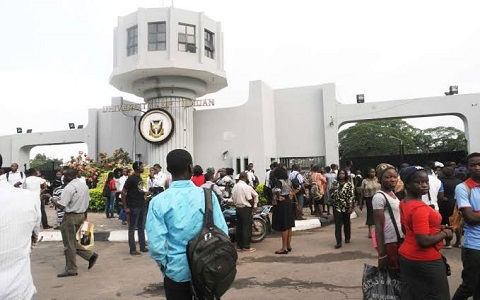

The campuses of tertiary institutions across the country could be said to be small cities on their own with populations made up of students, lecturers and other stakeholders.
A situation where peace and security in the campus is breached by criminals makes students become apprehensive and feel that their lives are in danger.
For instance on August 10, 2019, some suspected armed robbers raided a post-graduate hostel at the University of Ibadan, Oyo State.
The robbers carted away mobile phones, laptops and money of some of the students living in the hostel.
Last month, Awolowo Hall, a female hostel also at the University of Ibadan, came under attack of some gunmen, who did not only cart away students’ property, but also injured some of them.
Apart from armed robbery attacks, the campuses are rife with other criminal activities like cultism, rape, sexual assault and ritualism which taint students exposed to such violence for life.
Cultism has proved a major concern for existing security agencies on most campuses based on the fact that, the cultists possess more deadly and functional weapons than the campus security agencies.
This year in June, three students of Lagos State University were suspended for rape and cultism while Rukayat a 200 level student of the institution was also reportedly stabbed while resisting a robbery attack on her.
These incidences are just few of the cases that highlight the level of insecurity at many of the nation’s tertiary institutions.
There is the need therefore to take some urgent steps to put an end to this ugly trend in the nation’s tertiary institutions.
The modus operandi for the security checks at the main entrance should be reviewed.
The security department of every institution, as the watchdog of its environs must be more efficient to ensure that thorough examination and a complete search should be carried out on vehicles passing through the institutions’ gates.
The security department should meet up with global security measures by acquiring new and modern day security equipment such as Close Circuit Televisions (CCTV) cameras, bomb detectors, and scanners to assist security personnel at checking insecurity on campuses.
University authorities have roles to play if they want to make students stay as safe as possible on the campuses.
The very effective way to do this is to get students and staff involved in the promotions of personal safety as a grassroots responsibility.
Moreover, authorities should come up with schemes where staff and students liaise with the police and college security.
Student union leaders should also come up with strategies to identify potential threats to life and property of the people on campuses.
Students on their part should be encouraged to prominently mark items with their initials to make it harder for thieves to sell them.
One third of students will be affected by crime during their time at tertiary institutions, therefore authorities of higher institutions can and should do more to assist students stay safe and secure on the nation’s campuses, putting into consideration the psychological effects insecurity could have on them.
Olaolu Fawole